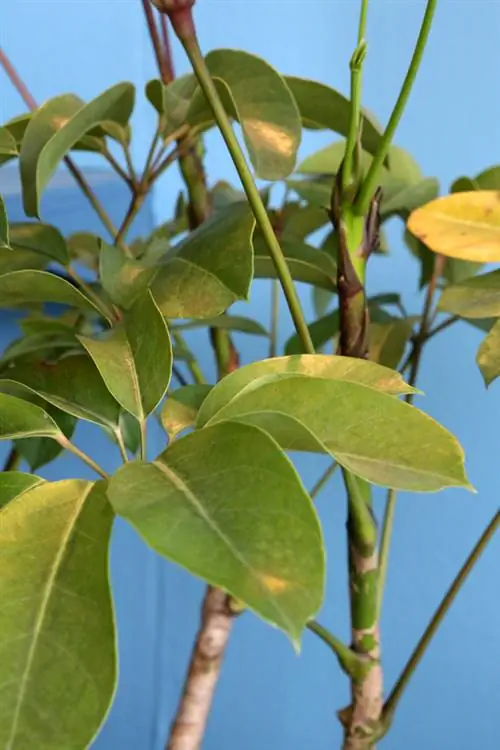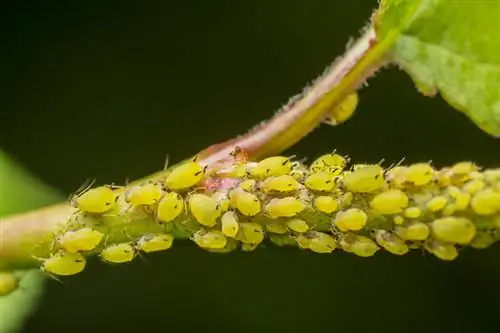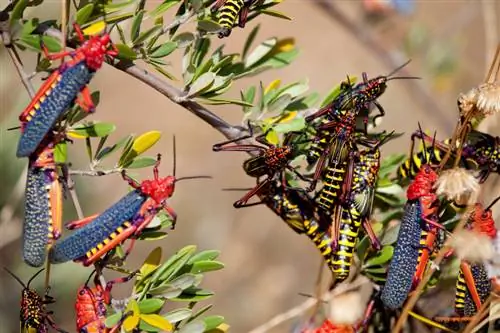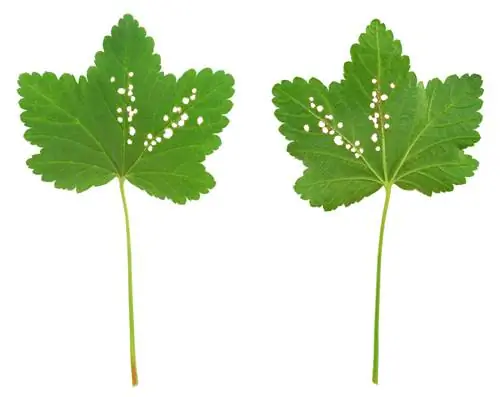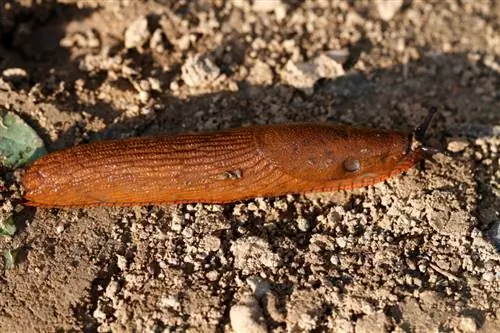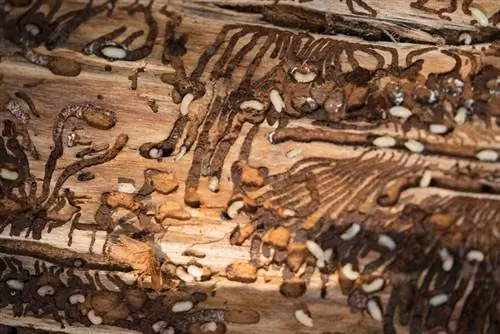- Author admin [email protected].
- Public 2023-12-16 16:46.
- Last modified 2025-06-01 06:02.
It looks good as a houseplant all year round and shows off its easy-care side. But if you place little value on a suitable location and neglect care, you have to expect that sooner or later a pest infestation may occur
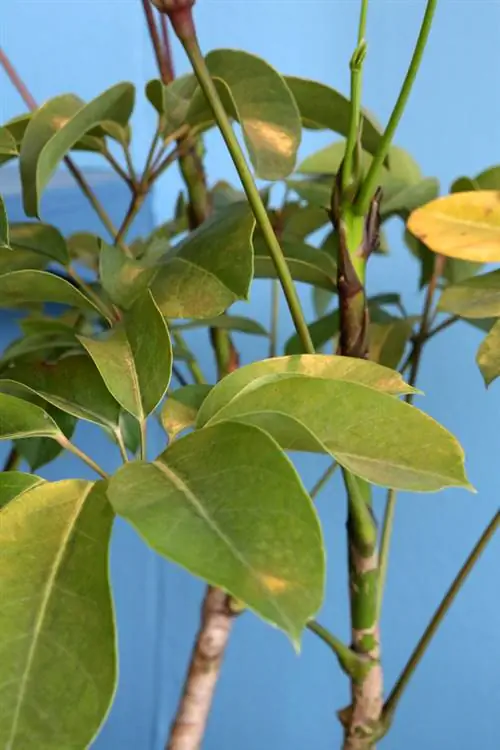
Which pests can attack Schefflera and how can you prevent it?
Schefflera can be attacked by pests such as scale insects, aphids, mealybugs, spider mites, thrips and soft skin mites. As a preventive measure, you should provide optimal care by watering adequately, fertilizing regularly, spraying the plant and ensuring good conditions.
Discolored leaves and leaf loss - symptoms of pest infestation
The radiant aralia can be attacked by various pests. Most of the pests suck the sap from the leaves, weakening the plant over time. You can often recognize a pest infestation by lightened to yellow leaves, leaf loss and a sad overall appearance.
Susceptibility depends on the Schefflera species
Susceptibility varies depending on the species. For example, Schefflera actinophylla is highly susceptible to scale insects. The Schefflera arboricola and the Schefflera elegantissima, on the other hand, are susceptible to scale insects as well as spider mites, soft-skin mites and thrips. Basically, the following pests are increasingly occurring in Schefflera:
- Scale insects
- Aphids
- Mealybugs
- Spider mites
- Thrips
- Soft skin mites
Make the pests harmless
Scale scale insects should be carefully scraped off with a knife. Aphids and mealybugs can be wiped off with a damp cloth. A strong jet of water can also help with aphids. It is then recommended to spray the plant with a solution of soft soap or dishwashing liquid, preferably in combination with spirit.
Prevent pest infestation - strengthen the plant
Better than any kind of control, which in most cases also weakens the plant or puts it under stress, is prevention. For example, the risk of pest infestation increases enormously if the Schefflera is exposed to temperatures that are too warm and/or humidity that is too low. The risk of this is particularly high in winter (heating air).
You can also prevent pest infestation by optimizing care:
- water abundantly and evenly
- fertilize at regular intervals, but not in winter
- repotting if the pot has become too small
- Reduce or even completely avoid stress for the plant
- spray regularly with low-lime water
Tip
Only in an emergency should you use toxic insecticides. It is better to use beneficial insects such as predatory mites beforehand and count on their help.

